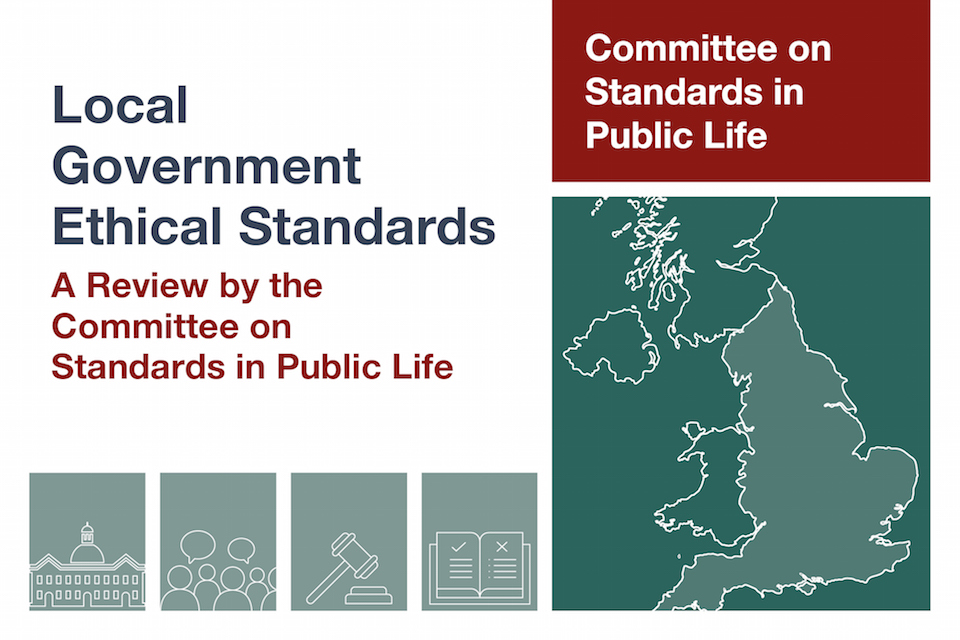
In January 2019, the Committee published a report and recommendations on local government ethical standards, an area of long-standing interest for CSPL. We approached the work as a health check of the standards framework in place at the time for local authorities across England, established by the Localism Act 2011. The report provided assurance that the arrangements in place are promoting and maintaining the standards expected by the public, and reinforced our view that the majority of local councillors maintain the highest ethical standards. However, we did recommend that some improvements were required, in particular, the need for maximum independence in local complaints processes and the need for greater sanctions where appropriate in the rare cases of significant or repeated breaches of the code of conduct. Having carried out a review of actions since the 2019 report, we can give further assurance that the majority of local councils are demonstrating their strong commitment to high standards in public life.
A key recommendation was that the LGA should develop a non-mandatory, model code of conduct. Following consultation, the LGA has now published this model code, which CSPL views as a welcome step, helping to set clear standards and avoid confusion for both councillors and members of the public alike.
We await the government’s formal response to this report.
As well as making recommendations to government, CSPL identified 15 best practice recommendations to drive high ethical standards in local government.
In the report, the Committee said it expected all local authorities could and should implement these best practice recommendations. We therefore followed up on progress in 2020, writing to all local authorities in England inviting them to update the Committee. CSPL is of course aware that the COVID-19 pandemic has involved significant additional work for those in local government and we will continue to accept responses. We have received 213 replies to date.
It was clear from the evidence we received during our review that the vast majority of councillors and officers want to maintain the highest standards of conduct in their own authority. This is also reflected in the positive responses received from local authorities which have replied to date, saying that they have already implemented or are taking steps to implement our best practice recommendations.
Many of the councils, if they didn’t use the precise terms of CSPL’s best practice recommendation in their codes of conduct, nonetheless had elements in place and were reviewing their practices to comply fully.
For example, with respect to the best practice recommendation: Codes should have prohibitions on bullying and harassment, many councils said that their codes contained provisions that members should treat others with respect. And with respect to our best practice recommendation: Councillors should comply with formal standards provisions, many councils said that whilst not explicitly articulated in their code, such provisions were contained within their protocols and procedures for handling standards complaints.
Of the 213 local authorities who had responded by 17 December 2020:
75.6 % said they have prohibitions on bullying and harassment in their code of conduct, or were putting them into place. Other councils we heard from were waiting for finalisation of the LGA model code of conduct to review how best to include prohibitions on bullying and harassment.
51.2 % said they have provisions in their code of conduct requiring councillors to comply with formal standards investigation. Most of the other councils we heard from said that they were waiting to see what the LGA model code of conduct looked like before they adapted their own codes of conduct to incorporate our best practice.
98.6 % said their code is readily accessible or were making changes to make the code accessible - published and available on council premises.
86.4 % said they update their gifts and hospitality register regularly and have made it readily accessible to the public.
98.6 % said they consulted an Independent Person as to whether to undertake a formal investigation on an allegation.
98.6 % said they had clear guidance on their websites informing members of the public how to make a complaint under the code of conduct.
93.9 % said that their senior offices had arrangements for meeting with political group leaders/whips to discuss standards issues.
See responses from local authorities on progress made against best practice recommendations here.
